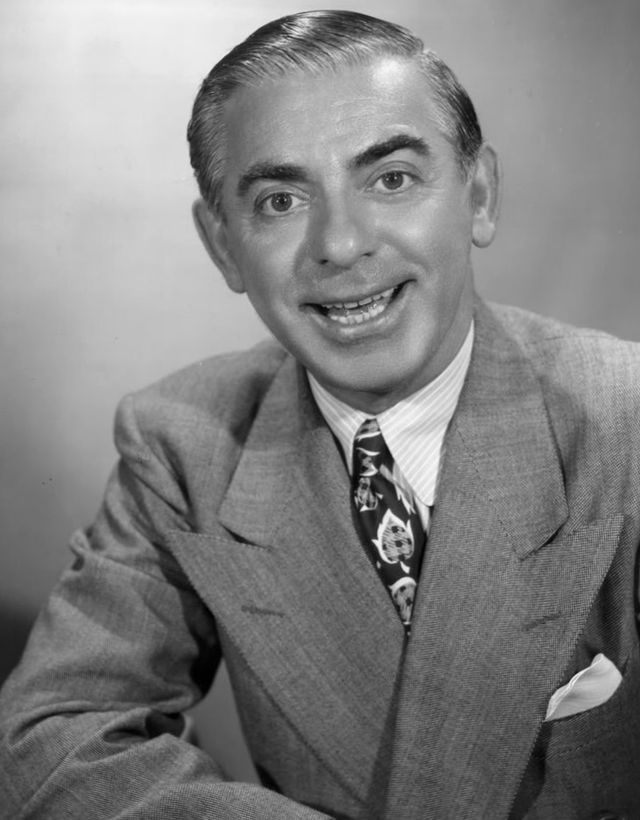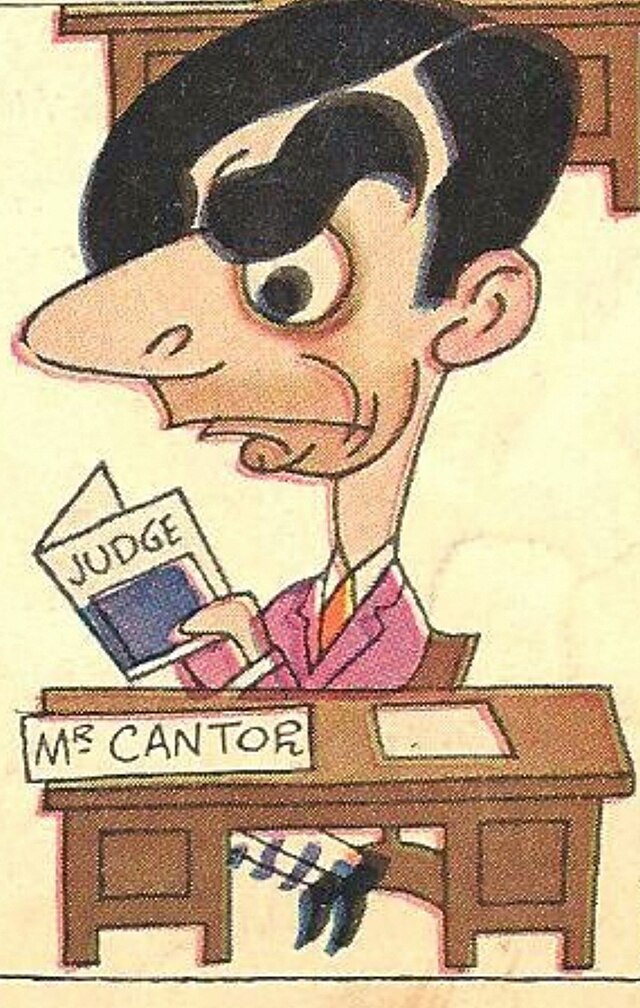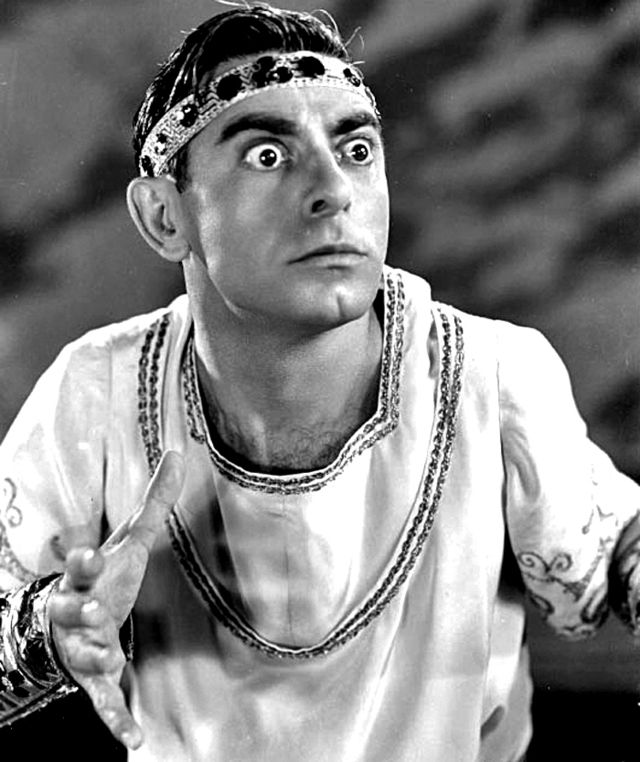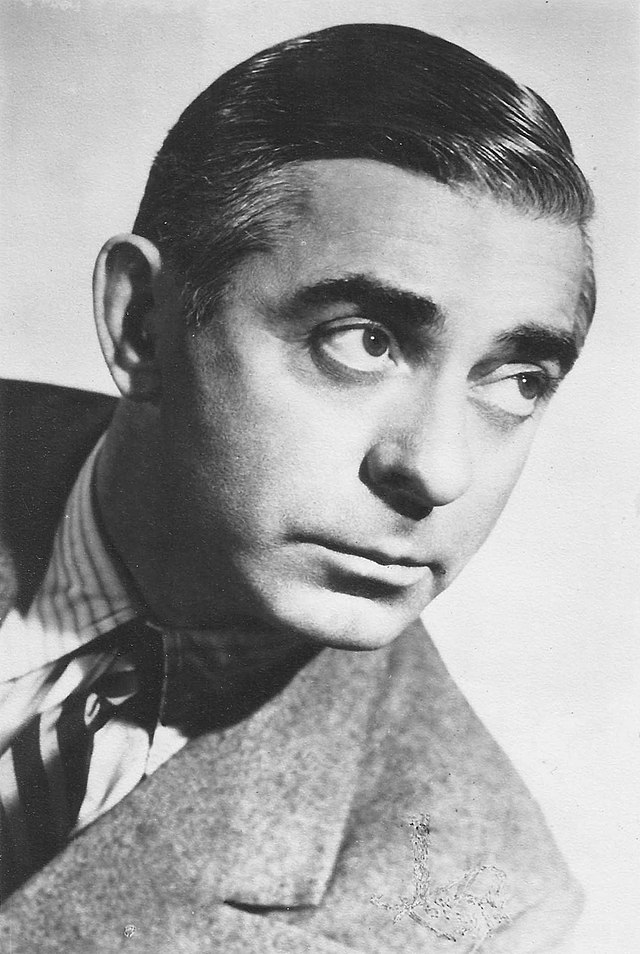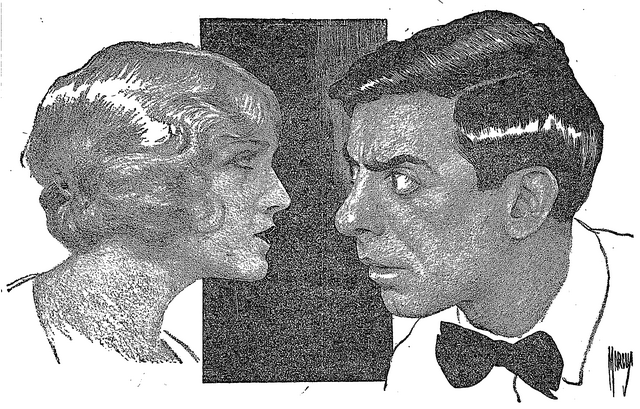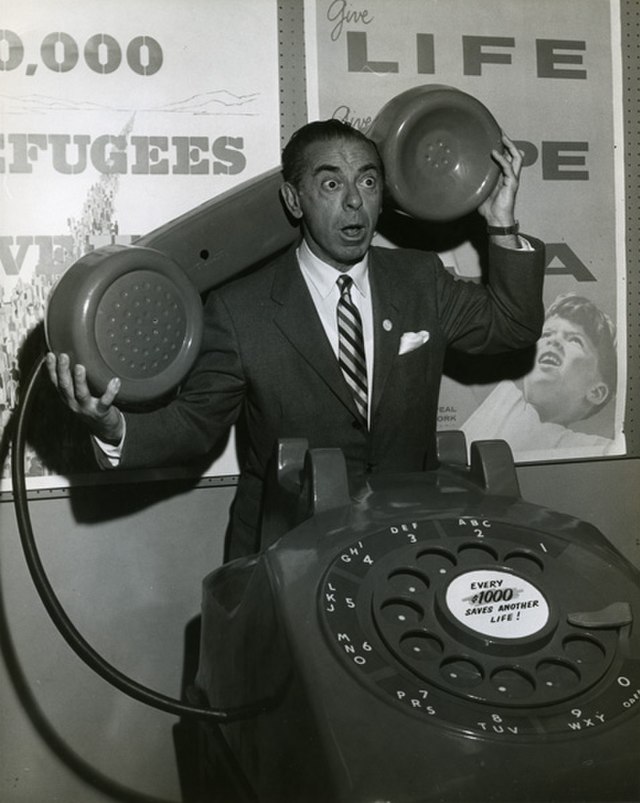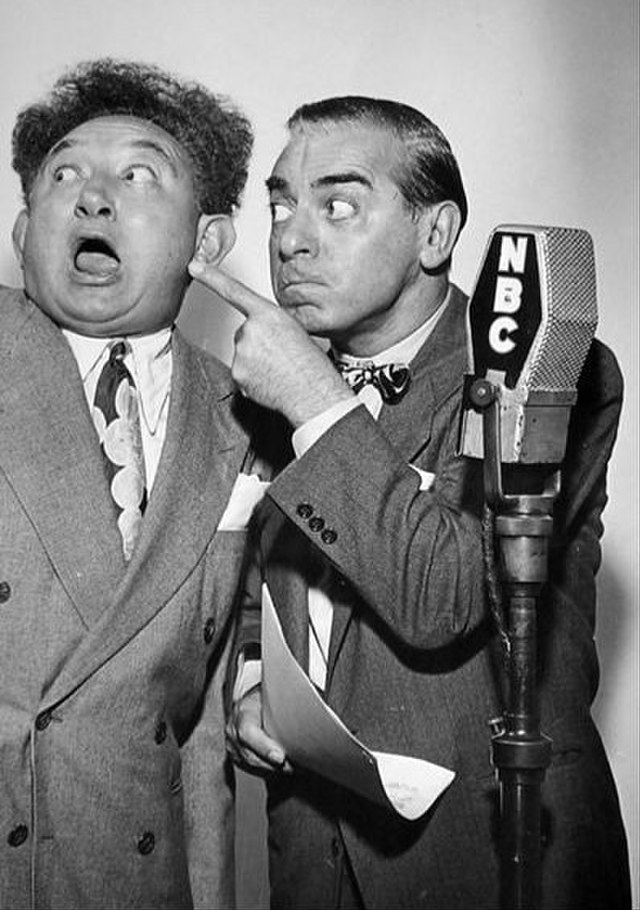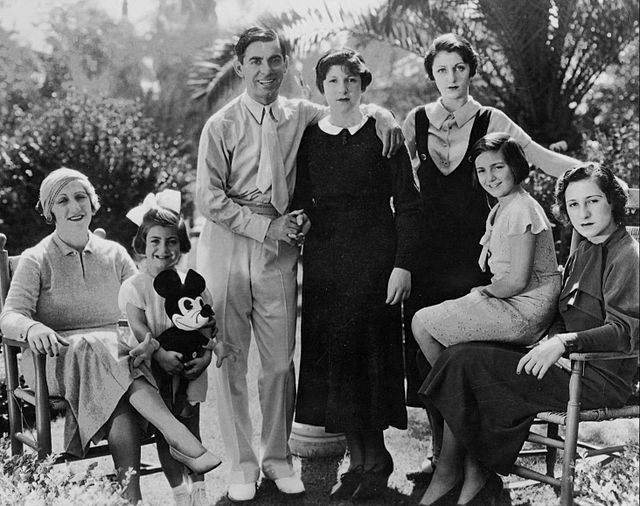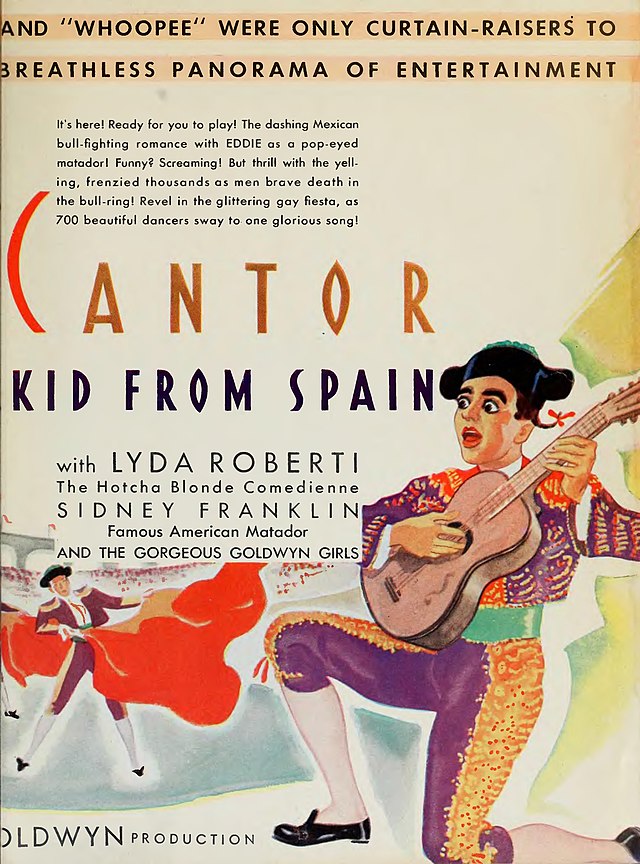Eddie Cantor (1892 – 1964)
Biography and Movie Career
Eddie Cantor, born Edward Israel Iskowitz on January 31, 1892, in New York City, grew up in the challenging environment of Manhattan’s Lower East Side. He was the only child of Russian-Jewish immigrants and faced tragedy early in life. Orphaned at the age of two after his mother’s death and his father’s abandonment, Eddie was raised by his grandmother, Esther Kantrowitz, whose last name he would later modify into “Cantor.” Despite a tough upbringing, Eddie’s natural wit and charisma began to shine through, and he soon became a favorite at school events and local gatherings.
As a teenager, Eddie dropped out of school to support himself and worked a series of odd jobs, including as a singing waiter. His flair for comedy and music turned the ordinary into the extraordinary, laying the groundwork for his entertainment career.
________________________________________
The Path to Stardom
Eddie’s first big break came when he won an amateur talent competition, which led him to the vaudeville stage. His comedic timing, combined with his strong singing voice, earned him a spot in the prestigious Ziegfeld Follies in 1917. It was here that he gained widespread attention, sharing the stage with icons like W.C. Fields, Will Rogers, and Fanny Brice. Eddie’s knack for humor, combined with his expressive eyes and slapstick comedy, made him a standout performer.
Transitioning from stage to screen, Eddie Cantor became one of the earliest movie stars of the sound era, starring in several popular films such as Whoopee! (1930), Palmy Days (1931), The Kid from Spain (1932), Roman Scandals (1933), and Ali Baba Goes to Town (1937). His on-screen persona was effervescent and full of life, characterized by his wide-eyed, zany expressions—a trait that earned him the nickname "Banjo Eyes."
Beyond film, Cantor became a household name in radio during the 1930s and 1940s, hosting The Chase and Sanborn Hour and The Eddie Cantor Show. He was known for his comedic sketches, catchy songs, and willingness to address serious issues, including his appeals for social change.
In television’s infancy, Cantor adapted yet again, hosting early TV programs that introduced his humor to a new audience.
________________________________________
Personal Life and Passions
Eddie married Ida Tobias in 1914, and the couple enjoyed a loving, enduring relationship until her death in 1962. Together, they had five daughters: Marjorie, Natalie, Edna, Marilyn, and Janet. Eddie was deeply devoted to his family and often shared anecdotes about them during his performances, adding a touch of relatability to his larger-than-life persona.
Cantor’s philanthropic efforts were as notable as his entertainment career. A passionate humanitarian, he was instrumental in founding the March of Dimes, an organization dedicated to combating polio. Cantor worked tirelessly to raise awareness and funds, leveraging his fame to support various causes, including racial equality. He frequently included African American artists in his shows, breaking barriers in an era of significant racial segregation.
He also had a keen interest in nurturing new talent, often mentoring young performers and helping them navigate the entertainment industry.
________________________________________
Later Years, Death, and Legacy
As he aged, Eddie Cantor’s career gradually slowed, but his influence remained. He suffered a series of health setbacks, including multiple heart attacks, which forced him into semi-retirement in the 1950s. Despite this, he continued to make occasional appearances on television and radio.
Eddie Cantor passed away on October 10, 1964, at the age of 72, in Beverly Hills, California, after suffering a heart attack. He was laid to rest at Hillside Memorial Park Cemetery in Culver City, California.
Cantor’s legacy as an entertainer and humanitarian endures. He was one of the first stars to seamlessly transition between vaudeville, film, radio, and television, paving the way for future multi-platform performers. His charitable work, particularly with the March of Dimes, left an indelible mark on American society.
Cantor is remembered not only for his talent but for his generosity and courage in addressing important social issues. He brought joy to millions during some of the nation’s most challenging times, including the Great Depression and World War II, making him a true icon of the Golden Age of entertainment.
Eddie Cantor’s Measurements
• Height: Approximately 5'5" (165 cm)
• Build: Slim and athletic, ideal for his active performances.
• Weight: Estimated to be around 130-140 pounds (59-64 kg).
Eddie Cantor Poster
The second photo above this text is a great caricature poster of Eddie Cantor by Ralph Barton in 1925.
Eddie Cantor sings Makin' Whoopee
Eddie Cantor’s exuberant Acting Style
Eddie Cantor’s acting style was a dynamic blend of energy, charm, and versatility, uniquely suited to the evolving entertainment mediums of his era. His performances stood out for their physicality, expressiveness, and ability to connect with audiences across different platforms, from vaudeville stages to the silver screen.
________________________________________
Exuberant Physicality
Eddie Cantor was a master of physical comedy, often using exaggerated movements, pratfalls, and slapstick humor to draw laughs. His small, wiry frame lent itself to a high-energy performance style, with his body becoming a tool for comedic storytelling. Whether he was dodging trouble, engaging in dance routines, or performing comical stunts, his physicality was a constant source of humor.
One of his trademarks was his expressive face, particularly his rolling eyes. These exaggerated expressions earned him the nickname “Banjo Eyes” and became a signature feature of his performances. He could convey a wide range of emotions with a single glance, amplifying his comedic timing.
________________________________________
Musical Integration
Cantor seamlessly blended music and comedy, often breaking into song to punctuate a scene or deliver a punchline. His singing voice, though not classically trained, was engaging and full of personality. He performed catchy tunes that became synonymous with his persona, such as “If You Knew Susie” and “Makin’ Whoopee.” These songs were often delivered with comedic flair, using humorous lyrics and playful gestures to enhance their impact.
His ability to combine singing with comedic storytelling allowed him to stand out in a medium that heavily relied on musical entertainment, particularly in early talkies where song-and-dance routines were a staple.
________________________________________
Relatable Everyman Persona
Cantor’s characters were often likable underdogs—ordinary men thrust into extraordinary or absurd situations. His roles typically revolved around his character overcoming challenges with wit, charm, and a touch of clumsiness. This made him relatable to Depression-era audiences, who saw in him a reflection of their struggles and aspirations.
Despite his larger-than-life stage presence, Cantor’s delivery had an approachable quality. His jokes and mannerisms felt natural, and his self-deprecating humor endeared him to audiences. He often poked fun at himself, using his nebbish persona to navigate and overcome adversity in his comedic roles.
________________________________________
Quick-Witted Verbal Comedy
Eddie Cantor was a gifted verbal comedian, known for his rapid-fire delivery and sharp timing. He often performed in a fast-paced, almost breathless style, peppering scenes with quips, puns, and humorous asides. His dialogue was often laced with double entendres and social satire, reflecting his intelligence and awareness of contemporary issues.
This quick wit extended beyond the script, as Cantor was known for his improvisational skills. He could adapt to live audiences and unexpected moments, a skill honed during his vaudeville years and carried into his work in film and radio.
________________________________________
Satirical Edge
Cantor’s humor frequently included a satirical element, poking fun at societal norms, politics, and Hollywood culture. In films like Roman Scandals and Ali Baba Goes to Town, his characters used modern-day knowledge to lampoon the settings they found themselves in. This ability to blend absurdity with social commentary gave his performances a layer of depth, elevating them beyond simple slapstick.
________________________________________
Engaging Interaction with Co-stars
Cantor had a unique ability to play off his co-stars, creating memorable comedic dynamics. Whether paired with romantic interests, comedic sidekicks, or even entire ensembles, Cantor’s charisma ensured he stood out while still enhancing the chemistry of the group. His interactions often involved a mix of teasing, quick repartee, and physical comedy.
________________________________________
Audience Connection
One of Cantor’s greatest strengths was his connection with the audience. He broke the fourth wall in films and performances, often addressing viewers directly or delivering winks and nods that made them feel part of the joke. This interactive approach, rare at the time, created an intimate rapport with his fans.
Awards and Recognition
Eddie Cantor received numerous awards and recognitions throughout his career, reflecting his multifaceted contributions to entertainment and his humanitarian efforts. Below is a comprehensive overview:
________________________________________
Entertainment Awards and Recognitions
• Academy Awards (Honorary Recognition):
Eddie Cantor received a special honorary award in 1956 from the Motion Picture Academy for distinguished service to the film industry, particularly for his role in organizing and leading charitable activities in Hollywood.
• Tony Awards (Special Award):
In 1956, Cantor was honored with a special Tony Award recognizing his career contributions to the theater, particularly for his pioneering performances in Broadway musicals like Whoopee! and Ziegfeld Follies.
• Hollywood Walk of Fame:
Eddie Cantor has two stars on the Hollywood Walk of Fame:
o Film (6415 Hollywood Blvd.): Recognizing his work as a movie actor.
o Radio (6648 Hollywood Blvd.): Celebrating his influence as a radio pioneer.
________________________________________
Humanitarian and Philanthropic Recognitions
• March of Dimes Recognition:
Cantor was one of the founding advocates for the March of Dimes, an organization established to combat polio. He worked tirelessly to raise funds and awareness, earning official commendations for his dedication to public health and social causes.
• The Humanitarian Award:
Presented to Cantor by multiple organizations throughout his life, these awards celebrated his commitment to social justice, charity, and racial equality. Cantor was a vocal advocate for underrepresented communities and supported progressive initiatives, often at personal risk during politically turbulent times.
• Variety Clubs International Award:
Cantor received this recognition for his contributions to children's charities through his work with the entertainment industry.
________________________________________
Legacy and Posthumous Recognition
• Kennedy Center Honors (1987, Posthumous):
Eddie Cantor was honored posthumously for his contributions to American culture through performing arts, recognizing his groundbreaking work across stage, film, radio, and television.
• Induction into the Radio Hall of Fame (1991, Posthumous):
Cantor’s work on radio was pivotal in defining the medium’s golden era. His induction celebrates his enduring influence on the format.
• Induction into the Songwriters Hall of Fame (1970, Posthumous):
Though primarily known as a performer, Cantor contributed to the success of many songs and worked with leading composers and lyricists. His induction acknowledged his impact on popular music and musical comedy.
• Tributes in Film and Literature:
Cantor’s life and work have been celebrated in documentaries and books, including his own autobiographical writings (My Life is in Your Hands). His contributions to early Hollywood and the entertainment industry at large have been highlighted in numerous retrospectives.
________________________________________
Other Honors and Achievements
• Military and Wartime Recognition:
Cantor was acknowledged for his morale-boosting work during World War II, including his involvement in USO shows and war bond drives. He used his fame to support troops and promote unity.
• Public Recognition:
Cantor received keys to various cities and honorary citizenships in recognition of his charitable efforts and his role as a public entertainer during the Great Depression and WWII.
Quotes from Eddie Cantor
On Comedy and Life
• "It takes 20 years to make an overnight success."
o Reflecting the hard work and perseverance behind his stardom.
• "Slow down and enjoy life. It's not only the scenery you miss by going too fast—you also miss the sense of where you are going and why."
o A reminder to savor life’s journey and purpose.
• "Marriage is an attempt to solve problems together which you didn't even have when you were on your own."
o A humorous take on married life.
________________________________________
On Success and Show Business
• "When I see the Ten Most Wanted list at the post office, I always think: 'If we'd made them feel wanted earlier, they wouldn't be wanted now.'"
o A mix of humor and social commentary.
• "A wedding is a funeral where you smell your own flowers."
o A lighthearted joke about the commitments and sacrifices of marriage.
• "A man hasn’t lived until he’s married, but by then it’s too late."
o Another of his iconic marriage-related quips.
________________________________________
On Perseverance and Optimism
• "The harder I work, the luckier I get."
o Emphasizing the importance of effort and determination.
• "If you haven't got any charity in your heart, you have the worst kind of heart trouble."
o Highlighting his belief in kindness and philanthropy.
________________________________________
On Social and Political Commentary
• "I’ve been up and down so many times that I feel as if I’m in a revolving door."
o Speaking about the highs and lows of his career with humor.
• "A loud voice is not the only thing needed to combat prejudice—understanding and goodwill are far more important."
o Reflecting his progressive views on social issues.
________________________________________
Miscellaneous Witticisms
• "What is a committee? A group of the unwilling, picked from the unfit, to do the unnecessary."
o A timeless joke about bureaucracy.
• "If you knew Susie, like I know Susie..."
o A lyric from one of his famous songs, often quoted in jest.
What Others said about Eddie Cantor
• George Burns (Comedian and Actor):
"Eddie was the hardest-working man in show business, but he never forgot to help others along the way. He was a pioneer, not just in entertainment but in showing kindness."
o Burns admired Cantor's relentless work ethic and generosity.
• Jack Benny (Comedian):
"Eddie was a master of timing—both comedic and personal. He knew exactly when to make you laugh and when to make you think."
o Benny highlighted Cantor's versatility as a performer and storyteller.
• Al Jolson (Singer and Actor):
"Eddie had a way of making everyone feel special, whether they were onstage with him or in the audience. His energy was infectious."
o Jolson recognized Cantor’s ability to connect with audiences and fellow performers alike.
• Will Rogers (Humorist):
"Eddie Cantor's comedy wasn’t just funny—it had a soul. He understood people and made them laugh about things that mattered."
o Rogers appreciated Cantor’s knack for blending humor with social commentary.
• Walter Winchell (Journalist and Broadcaster):
"Eddie Cantor was America’s song-and-dance man during its toughest times. He gave us laughter when we needed it most and reminded us that better days were ahead."
o Winchell reflected on Cantor’s role as a beacon of hope during the Great Depression and World War II.
• Variety Magazine (1930s):
"Cantor’s energy on screen is unparalleled. His eyes alone tell a story, and his comedic timing is flawless."
o The trade magazine praised Cantor’s unique style and expressive performances in early sound films.
• Leonard Maltin (Film Historian):
"Eddie Cantor was a trailblazer. He brought vaudeville to film, radio, and TV with such authenticity that he became a template for modern entertainers."
o Maltin emphasized Cantor’s influence on shaping the entertainment industry.
• Franklin D. Roosevelt (President of the United States):
"Eddie Cantor’s work for the March of Dimes has saved countless lives. He is not just a great entertainer, but a great American."
o Roosevelt commended Cantor’s leadership in combating polio through the March of Dimes.
• Helen Keller (Humanitarian and Activist):
"Eddie Cantor understood the importance of using his voice to uplift the voiceless. His dedication to social causes is an inspiration."
o Keller acknowledged Cantor’s commitment to advocacy and charity.
• Bob Hope (Comedian and Actor):
"Eddie Cantor set the bar for entertainers who wanted to make a difference. He was the original triple-threat: actor, singer, and philanthropist."
o Hope admired Cantor’s ability to succeed across multiple platforms while giving back to society.
• Milton Berle (Comedian):
"Eddie was a giant. Not just in what he did for comedy but in how he showed the rest of us how to be decent human beings in an industry that often forgets that."
o Berle reflected on Cantor’s integrity and influence as a role model.
Movies with Eddie Cantor
1926
• Kid Boots
Synopsis: Eddie plays a hapless tailor who tries to help his friend escape a marriage, only to get entangled in a series of humorous misadventures at a golf resort.
________________________________________
1927
• Special Delivery
Synopsis: Eddie stars as a mail carrier who must retrieve a valuable letter while dealing with a web of mistaken identities and romantic complications.
________________________________________
1930
• Whoopee!
Synopsis: Adapted from his Broadway success, Eddie plays Henry Williams, a hypochondriac who gets involved in a runaway bride’s journey through the Wild West, filled with colorful musical numbers and comedic chaos.
________________________________________
1931
• Palmy Days
Synopsis: Eddie stars as a fast-talking bakery worker who uncovers a fraudulent scheme in a health spa, leading to comedic and musical hijinks.
________________________________________
1932
• The Kid from Spain
Synopsis: Eddie plays a college student mistaken for a bank robber, who flees to Mexico and accidentally ends up performing in a bullfighting ring.
________________________________________
1933
• Roman Scandals
Synopsis: Transported back in time to Ancient Rome, Eddie’s character, a small-town delivery boy, finds himself entangled in political intrigue and heroically saves a group of slaves. The film features extravagant musical numbers and satire.
________________________________________
1934
• The Kid from Spain (re-release)
Synopsis: A reissue of Eddie’s hit film due to its enduring popularity.
________________________________________
1935
• Strike Me Pink
Synopsis: Eddie plays a timid amusement park operator who accidentally becomes a hero when he stands up to gangsters trying to take over the park.
________________________________________
1937
• Ali Baba Goes to Town
Synopsis: In this satirical fantasy, Eddie plays a Hollywood extra who dreams he’s transported to ancient Baghdad, where he uses modern knowledge to reform the government and bring prosperity.
________________________________________
1944
• Show Business
Synopsis: Eddie stars as a vaudeville performer struggling to achieve success in the competitive world of show business, blending comedy with nostalgic nods to the early days of entertainment.
________________________________________
1945
• Hollywood Canteen
Synopsis: Eddie makes a cameo appearance in this patriotic film about a real-life club for WWII servicemen, featuring numerous Hollywood stars.
________________________________________
1948
• If You Knew Susie
Synopsis: Eddie and Joan Davis play a married vaudeville team who discover a fortune in antiques, leading to misunderstandings and humorous situations as they try to hold onto their newfound wealth.
________________________________________
1952
• The Story of Will Rogers
Synopsis: Eddie makes a brief appearance in this biographical film about his friend and fellow entertainer, Will Rogers.
________________________________________
1953
• This Is Your Life (TV film)
Synopsis: Eddie appeared as the subject of this episode, reflecting on his life and career in an emotional and comedic retrospective.

